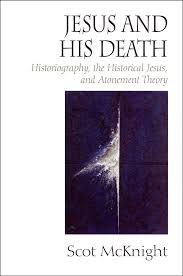If Craig Evans had been in my class when I was a high school history teacher and if he handed in his essay on “Criteria for evaluating the Gospels” (as published in his Fabricating Jesus) I would have liked to have given him fair marks for his description of some of the criteria, but would have held back any mark at all until I had
- questioned him orally on his comprehension of what he had just described;
- and required him to repeat his assignment and resubmit it without the glaring contradictions that left a reader confused over whether he was arguing for against the criteria.
How could any senior high school teacher accept an essay that began:
Thoughtful people rightly apply criteria in evaluating claims . . . .
So also historians apply criteria for assessing the historical worth of documents. . . .
Over the years, biblical scholars have developed historical and literary criteria for assessing biblical literature. . . .
But concluded:
Here is where I think many skeptical scholars, especially among the prominent members of the Jesus Seminar, go wrong. They not only misapply some of the criteria (such as dissimilarity) and ignore or misunderstand others . . . , they tend to assume that sayings and deeds not supported by the criteria must be judged as inauthentic. This severe, skeptical method leads to limited results . . .
Either this student has not understood what he was writing about, or he wrote very late at night and went off the rails under addling weariness. Earlier he had chastized Robert Price’s conclusions and methods for not being acceptable to anyone “trained in history”. Yet here Evans concludes a discussion on historical criteria, tools of historians, with a statement implying that the best historical standards will discard them if they do not support his religious beliefs!
Or maybe he was just playing a game of Let’s Pretend at the beginning of his essay, pretending to sound as if he did agree with the logic underpinning the criteria and the functions they served. Maybe then his third person “historians” were in his mind very much a very distant third party far removed from anything he himself felt affinity with. But under weariness he finally let his guard down and it became clear that the only criterion he really understood as a budding historian was the authority of the Bible. If the criteria don’t support a particular biblical narrative, so much the worse for the criteria! They suddenly become a false method, no longer “thoughtful criteria”, but instruments of “severe scepticism”.
If the latter, he would have to be confronted for his intellectual dissembling.
Criteria problems nonetheless
Not that I don’t have some qualms with such criteria myself and how easy it is sometimes to read too much into them. I will discuss them in future posts, hopefully, along with the apparent “necessity” for them in the absence of primary sources. (Compare discussion in previous post on historical methods.)
Meanwhile, I should leave the reminder that would best be whispered in Evans’ ear on the side (to avoid embarrassment for all) that he was overstated his complaint by claiming scholars do not as a rule deem “inauthentic” words and deeds unsupported by the criteria, but rather as unable to be assigned as authentic. Perhaps in his evangelistic enthusiasm he got carried away and way overstated his case (to the point of unfortunate misrepresentation) unintentionally.
But till then, I by no means deny that the criteria do have some merit. For example, if I were to advise anyone wishing to write an historical novel I could do no better than to direct them to these “criteria for authenticity” and advise them to construct only fictional scenes that complied with any number of them. A novelist who did so would have the flavor of unassailable authenticity guaranteed.
Criterion of ignorance
Meanwhile, the teacher in me skimmed ahead through the later chapters looking for this student’s use of the criteria but found little that stood out.
I did expect he was about to discuss the criteria, however, when I came to this passage:
When the gospel writes that Jesus said “No prophet is without honor, except in his own country” (Mark 6:4), we can likely trust this to be truly historic because “it is hard to understand why early Christians would make up a saying implying that Jesus’ relatives and acquaintances did not treat him with respect.” (p. 224)
Unfortunately no. Rather, this student of mine was guilty of the most unforgivable sloppy laziness. He knew very well the arguments explaining why Christians would most certainly “make up” such a saying. Or maybe he was asleep and did not do his homework on those earlier lessons. I’ll have to remind him of the basics and require him to discuss in his re-written essay the arguments for and against the following well-known reasons for such a passage in Mark:
The author of the gospel was portraying Jesus with the same motifs as were used of the most prominent chosen people of God in the past — family rejection. Remember Joseph? Remember David? Both were deemed unworthy of any special status by their brethren. I would have thought Craig Evans would have known Psalm 27:10 well and would have taken it to be a Psalm of David, and would have taken Jesus to be a son of David, and would have been moved by David’s proclamation in that Psalm that even his mother and father rejected him. Not to mention the more colorful narrative of how David’s father and brothers never thought him worthy enough to be thought kingship material.
It is hard to understand why this student, Craig A. Evans, would put to writing a statement implying that early Christians saw no reason to think that Jesus’ relatives and acquaintances might have been unlike those of Joseph or David, especially when such comparisons are regularly drawn even in weekly church sermons without the aid of any scholarly apparatus. With all his learning, has he just lost sight of the necessary scholarly balance beneath the mass of data he as accrued for his faith-based purposes?
Criterion of biblical authority
There was another opportunity for Evans to appeal to a discussion of some or even one of the criteria of authenticity again, but again he failed to seize his opportunity.
Beginning on the same page Craig Evans complained about those scholars who see in the gospels’ use of the title “rabbi” for Jesus an anachronism, since “rabbi” did not become a title till after 70 c.e. (Although Evans refuses to use the c.e. designation, insisting throughout, for reasons not hard to imagine, on the anachronistic and theologically charged A.D. Stubborn pupil. Obviously thinks he is above scholarly conventions and norms.)
And what is Evans’s argument contra? Well, simply that the Gospels use it of Jesus, therefore it cannot have been anachronistic after all. In other words, the Gospels are true and all other so-called evidence should be evaluated in the light of literalist and fundamentalist interpretation of them. Gospels do not need any further corroboration — faith is all they need. Scholarly controls are useful for other textual studies, but are “misguidedly suspicious” if applied to the Gospels!
Evans says “the use of rabbi in the Gospels is informal and evidently reflects Jewish usage in the first century, before its later, formalized usage.” He does not, however, offer the reader an example to demonstrate his claim that the word is used “informally” in the Gospels. It simply isn’t. Nor does he discuss the Gospel of Matthew’s account of Jesus forbidding the use of the term for his disciples (Matt. 23:9) — clearly he considered it a formal term, even “in the first century”!
How could bible-believing Evans have honestly overlooked this passage? Will he need to be confronted for his intellectual dishonesty on this count too? Stressful. Teachers have enough stress without having to confront situations like these.
Nor does he offer any evidence that it reflected informal Jewish usage in the first century. One witness — even an anonymous witness that has been dated anywhere between the mid first century and the early second century, what we know as the canonical Gospel of Matthew — is enough, he thinks, to settle his claim. In other words, Evans seems to be trying to slip into this classroom essay a view something like:
The Bible says it, I believe it, that settles it!
I will have to have a talk with the principal and then with Craig’s parents to see if he really should continue in a school that seeks to inculcate a “training in history” in all its students – a matter discussed in this previous post.
Like this:
Like Loading...









